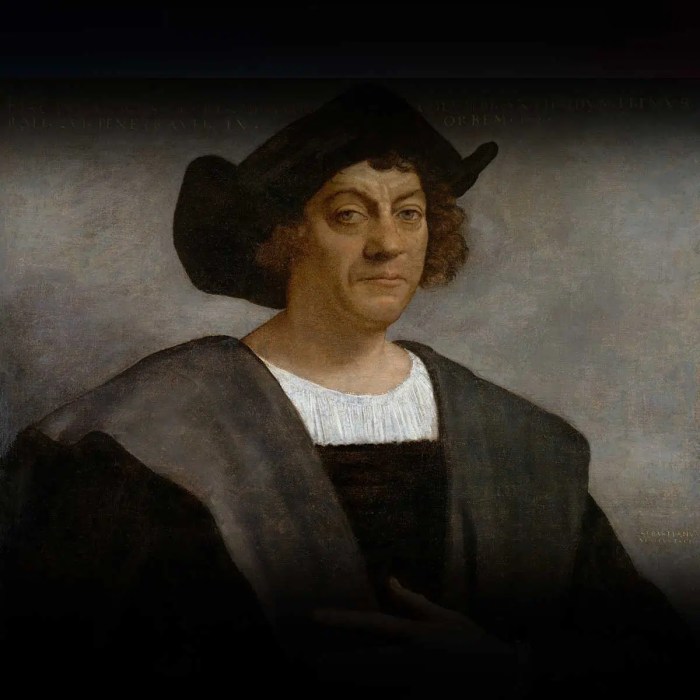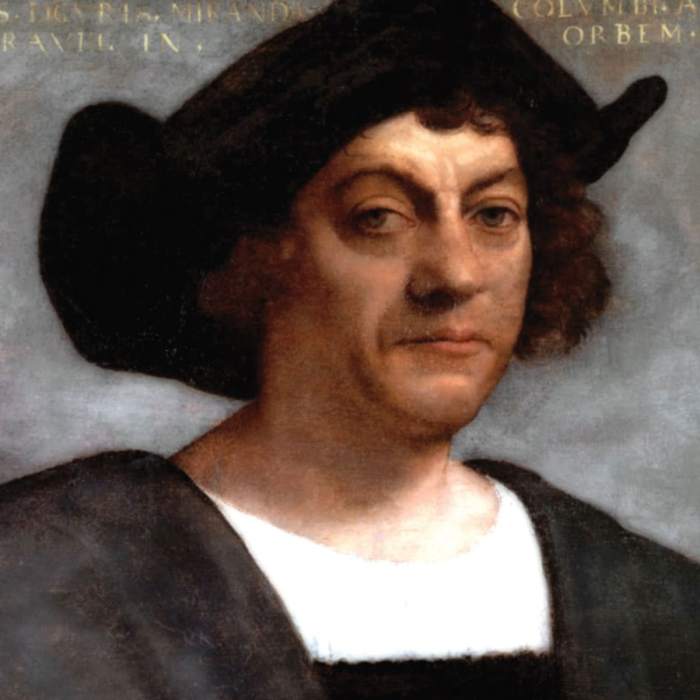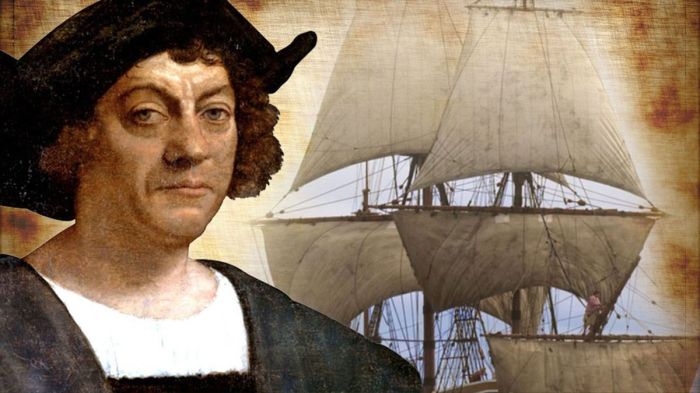When Was Christopher Columbus Born? This question has puzzled historians for centuries, and its answer is shrouded in mystery. Join us as we delve into the life of this enigmatic explorer and discover the fascinating details surrounding his birth and its profound impact on world history.
Born in the 15th century, Christopher Columbus embarked on a series of voyages that would forever alter the course of human civilization. His discoveries paved the way for European exploration and colonization of the Americas, shaping the geopolitical landscape of the world as we know it today.
Christopher Columbus’s Birth Date: When Was Christopher Columbus Born
Christopher Columbus, the renowned explorer who embarked on several voyages across the Atlantic Ocean, is believed to have been born on October 31, 1451, in Genoa, Italy. This date is widely accepted by historians and is supported by various historical records and documents.
Sources and Evidence
The primary source of information regarding Columbus’s birth date is a letter written by his son, Ferdinand Columbus, in 1539. In this letter, Ferdinand states that his father was born on October 31, 1451, in Genoa. This letter has been widely accepted as a reliable source of information, as Ferdinand had access to his father’s personal papers and was known to be a meticulous record-keeper.
Other historical documents, such as tax records and church registers from Genoa, also support the October 31, 1451, birth date. These records provide independent confirmation of Columbus’s birth year and place.
Uncertainties and Controversies
Despite the existence of these sources, there have been some uncertainties and controversies surrounding Columbus’s birth date. Some historians have suggested that he may have been born a few years earlier or later than the accepted date. However, these claims have not been widely accepted, and the October 31, 1451, birth date remains the most credible and well-supported.
Christopher Columbus’s exact birth date remains shrouded in mystery, with various theories suggesting different years. However, one thing is certain: the allure of his voyages continues to captivate. Just like the enigmatic allure of the “Born To Die Vinyl,” a musical masterpiece that echoes the timeless spirit of discovery . Columbus’s legacy, like the vinyl’s haunting melodies, resonates across the centuries, inspiring countless tales of exploration and adventure.
Historical Context of Columbus’s Birth

The 15th century marked a period of significant change and exploration in Europe. The Renaissance had sparked a renewed interest in classical learning and science, and this intellectual fervor extended to the exploration of the world beyond Europe’s borders.
Role of Exploration and Discovery
Exploration and discovery played a pivotal role in the 15th century. European nations, driven by a desire for wealth, power, and knowledge, embarked on ambitious voyages to discover new lands and trade routes. The Portuguese, under the leadership of Prince Henry the Navigator, pioneered maritime exploration, venturing along the African coast in search of a sea route to India.
Motivations and Goals of European Explorers
The motivations of European explorers were complex and varied. Economic factors, such as the search for new sources of wealth and trade goods, played a significant role. Explorers also sought to spread Christianity to new lands and to establish political and military dominance over foreign territories.
Columbus’s Family and Early Life
Christopher Columbus was born into a family of weavers in Genoa, Italy. His father, Domenico Colombo, was a wool weaver, and his mother, Susanna Fontanarossa, was a homemaker. Columbus had three brothers: Bartolomeo, Giovanni Pellegrino, and Giacomo. His early life was spent in Genoa, where he received a basic education and learned the trade of wool weaving from his father.
Columbus’s early life experiences had a significant influence on his later career as an explorer. His childhood in a seafaring city exposed him to the maritime world and sparked his interest in navigation and exploration. The skills he learned as a weaver, such as knot-tying and sail-making, proved invaluable during his later voyages.
Parents
- Father:Domenico Colombo, a wool weaver
- Mother:Susanna Fontanarossa, a homemaker
Siblings
- Bartolomeo:Christopher’s older brother, who also became an explorer
- Giovanni Pellegrino:Christopher’s younger brother, who died young
- Giacomo:Christopher’s younger brother, who also became a weaver
Columbus’s Voyages and Discoveries

Christopher Columbus embarked on four major voyages that transformed European exploration and laid the foundation for European colonization in the Americas. His discoveries had a profound impact on the world, shaping the course of history and global interactions.
First Voyage (1492-1493)
- Departed from Palos de la Frontera, Spain, on August 3, 1492.
- Crossed the Atlantic Ocean and reached the Bahamas on October 12, 1492, believing he had reached Asia.
- Explored the islands of the Caribbean, including Cuba and Hispaniola.
- Returned to Spain on March 15, 1493, with gold, spices, and indigenous people.
Second Voyage (1493-1496)
- Departed from Cadiz, Spain, on September 25, 1493.
- Reached the Lesser Antilles, Puerto Rico, and Jamaica.
- Established settlements on Hispaniola and founded the city of Santo Domingo.
- Returned to Spain on June 11, 1496, with more gold and indigenous people.
Third Voyage (1498-1500)
- Departed from Sanlúcar de Barrameda, Spain, on May 30, 1498.
- Reached Trinidad and Tobago and explored the coast of South America.
- Returned to Hispaniola on August 30, 1500, after encountering storms and facing rebellion from settlers.
Fourth Voyage (1502-1504)
- Departed from Cadiz, Spain, on May 11, 1502.
- Explored the coast of Central America, including Honduras, Nicaragua, and Costa Rica.
- Reached Panama, but failed to find a passage to the Pacific Ocean.
- Returned to Spain on November 7, 1504, after being shipwrecked in Jamaica.
Legacy and Impact of Columbus

Christopher Columbus’s legacy and impact on history are multifaceted and controversial. His voyages initiated European exploration and colonization of the Americas, leading to significant changes in the world’s political, economic, and cultural landscape.
Columbus’s role in the European conquest of the Americas has been widely debated. Critics argue that his arrival in the Caribbean marked the beginning of a period of violence, disease, and exploitation for indigenous populations. His actions, such as enslaving and trading Native Americans, have been condemned as brutal and inhumane.
Controversy and Debates, When Was Christopher Columbus Born
The controversy surrounding Columbus’s legacy stems from the complex and often negative impact of European colonialism on indigenous peoples. Many argue that Columbus’s arrival set in motion a chain of events that led to the displacement, oppression, and genocide of Native American populations.
However, some historians contend that Columbus’s voyages also had positive consequences. They point to the introduction of new crops and technologies to the Americas, which led to increased agricultural productivity and economic growth. Additionally, Columbus’s discoveries opened up new trade routes and expanded European knowledge of the world.
Christopher Columbus, the renowned explorer, was born in 1451. Intriguingly, around the same period, another luminary, Leonardo da Vinci, was born in 1452. When Was Leonardo Da Vinci Born , you may ask? Intriguing, isn’t it? Nevertheless, returning to our original topic, Christopher Columbus’s birth year of 1451 marked the beginning of a remarkable era.
Different Perspectives
Today, there are many different perspectives on Columbus’s legacy. Some view him as a heroic explorer who opened up the New World to European exploration. Others see him as a symbol of European imperialism and oppression.
In recent years, there has been a growing movement to reassess Columbus’s legacy and to acknowledge the negative consequences of European colonialism. Many cities and institutions have removed statues of Columbus or renamed streets and buildings that were named after him.
Concluding Remarks
Christopher Columbus’s legacy remains a subject of debate and controversy. While his voyages brought about significant advancements in navigation and exploration, they also had devastating consequences for the indigenous populations of the Americas. His impact on history is undeniable, and his name continues to evoke strong emotions and inspire ongoing discussions about the complexities of colonialism and its lasting effects.
FAQs
What is the exact date and year of Christopher Columbus’s birth?
The exact date of Christopher Columbus’s birth is unknown, but most historians believe he was born between 1451 and 1455.
Where was Christopher Columbus born?
Christopher Columbus was born in the Republic of Genoa, which is now part of Italy.
What were Christopher Columbus’s motivations for exploring the Americas?
Christopher Columbus was motivated by a desire to find a new route to Asia, as well as to spread Christianity and expand the Spanish empire.